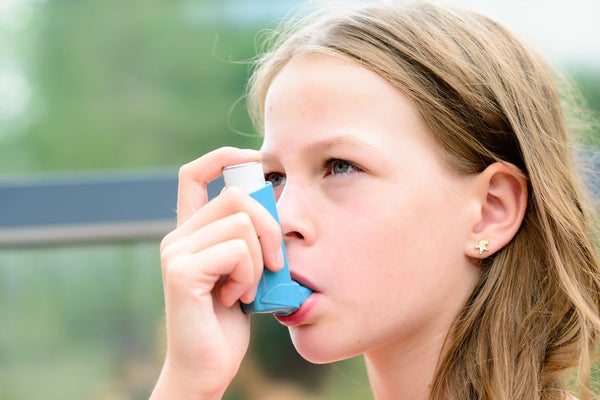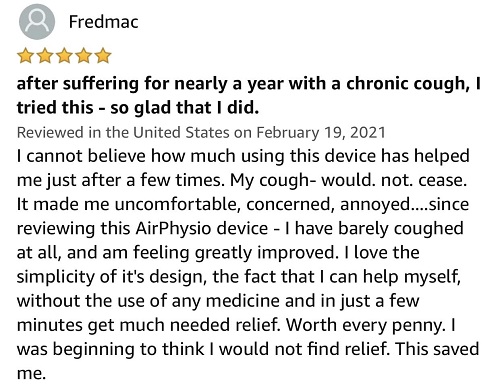Can You Grow Out of Asthma? Here’s the Answer
If you’re one of the many individuals diagnosed with asthma, you’re probably curious about any potential cures for this condition.
Most people who have asthma are aware that their condition is not curable. However, there are certain periods where the symptoms don’t flare up that can confuse. This may bring hope and relief that your asthma has disappeared. However, it might just be the medication or avoidance of asthmatic triggers that are working in your favor.
You may have also come across instances where children who were diagnosed with asthma seemingly stop experiencing symptoms out of the blue. They don’t report any breathing issues, stop using medication and lead their life normally. Is that true? Can you grow out of asthma? If so, how? Is it just certain people or can anyone outgrow asthma? Let’s take a deeper look to explore this issue.
which age group is most affected by Asthma?
As per National Heart, Lung, and Blood Institute, asthma affects people of all ages and it often starts during childhood. The American Academy of Allergy, Asthma, and Immunology (AAAAI) states that the childhood asthma rate increased from 8.7% in 2001 to 9.4% in 2010. This further decreased to 8.3% in 2016. Similarly, the asthma rate was 8.8% among adults during 2011-2014 and it was most seen in people with obesity.
Certain factors lead to asthma development. For example, children who already have a history of respiratory infections are at a higher risk of getting asthma. Additionally, those who already have a family history of asthma or even other medical problems like a food allergy and eczema have a greater risk.
In adults, another triggering reason can be obesity. As per AAAAI, the asthma rates between different weight groups were as follows:
- 7.1% in patients with regular weights
- 7.8% in overweight patients
- 11.1% in patients with obesity
Even influenza or working certain jobs can be an asthma trigger. Around 1.9 million people i.e., 15.7 percent of adults with asthma are known to have occupational asthma in the U.S.
The nature of these triggers can make managing asthma tricky. While you may be fortunate enough to not experience regular flare-ups, it is important to monitor symptoms to prevent asthma episodes.
For instance, if you face any of these symptoms, chances are that your asthma is probably worsening:
- The increased struggle to breathe
- The increased use of a quick-relief inhaler
- More frequent and bothersome asthma symptoms like chest tightness, breathlessness, and coughing
For some, the asthma symptoms may flare up in certain conditions including:
Occupational asthma: This is triggered due to some workplace irritants like dust, gases, and chemical fumes.
Allergy induced asthma: This is when you’re allergic to airborne substances like mold, pollen, skin particles, or even the dried saliva shed by pets or pet dander.
Exercise induced asthma: This happens when there’s a transition in the air i.e., if it gets too cold or dry, you are prone to flare-ups.
CAN YOU GROW OUT OF ASTHMA?
Unfortunately, the answer to this question is complicated. It’s yes, but also, no.
The first thing to consider here is your age. Outgrowing one’s asthma depends on your age. A patient experiencing asthma symptoms from a young age has equal chances of having a normal wheezing and viral respiratory condition or full-blown asthma.

can children outgrow asthma?
Generally, children before age five will experience asthma symptoms. However, diagnosing asthma in children s difficult, as lung function tests involved for diagnosis are too tough for them.
If a child is developing asthma symptoms, there is around a 50% chance that they will outgrow them. That said, there’s also a 25% probability of those symptoms coming back again at a later stage of life. This means, there’s a 25% chance that your child permanently outgrows asthma (maybe your child never had asthma, and just showed asthma-like symptoms)
asthma vs. asthma-like symptoms-know the diffrence
A child showing asthma symptoms doesn’t always need to have asthma.
Asthma is a medical condition in which your airways become narrow and swollen, the breathing tubes become inflamed, and may even produce extra mucus. This leads to wheezing and breathlessness. Some may be affected less while for some, it may interfere with daily activities. In a worst-case scenario, it can even lead to a severe asthma attack.
Generally, the airways can get oversensitive if a child has an infection or has inhaled any irritating substance into the lungs. It does not necessarily point towards asthma as a child has smaller airways than an adult. This may further trigger asthmatic symptoms like cough and wheezing.
Many children who seem to have grown out of asthma may have never had it in the first place. They may be simply suffering from other viral respiratory infections, bronchitis, or pneumonia. However, note that it is equally important to confirm the same. The chances of asthma development are higher in certain cases, especially if someone in your family has a history of the same. It’s better to reach out to a healthcare provider to eliminate the possibility.
why do some children grow out of asthma while others don’t?
As outlined above, the first reason can be that the child never had asthma and just had asthma-like symptoms.
However, apart from this, many other reasons can contribute here. One important factor is family history. If a parent is asthmatic, the chances of your child outgrowing the symptoms will decrease. Genetics may be one of the primary reasons why some children aren’t able to outgrow their asthma symptoms.
Next are the environmental factors. If your child is growing up in an environment where parents smoke cigarettes, it can highly affect their lungs. They can further have difficulty in breathing and can contribute to an asthmatic condition.
Third and the last reason is the health of the child. If he/she is already facing health issues like respiratory infections, wheezing and other illnesses, their asthma is likely to stick around.
can older kids outgrow asthma?
Again, the answer is not straightforward. There are very few studies that state asthma followed children even into their adult years. One study that was published in the journal Pediatrics in 2013 observed 248 children with asthma till they turned 19.
The findings state that at the age 19:
- 21% were able to outgrow the asthma symptoms
- 38% experienced irregular symptoms
- 41% had frequent symptoms
It is believed that children who were surrounded by pets like cats and dogs or those who were severely asthmatic at a young age were more prone to experience persistent asthma even at the age of 19.
can adults outgrow asthma?
No, it is unlikely to outgrow asthma as an adult as it is a long-term disease for them. However, the good news is, even if there’s no permanent cure to it, you’ll still be able to lead a normal, active life. All you need is to have a good asthma action plan in place. Following this can even allow you to spend long periods without experiencing any symptoms.

asthma management – minimizing your risk of an attack
While this may seem obvious, the best way to minimize the risk is to follow medications as soon as your start having the symptoms.
There may be times when you think you have outgrown asthma, so you no longer take medicines. It is important to act the second you experience symptoms if you want to control them. It is also recommended to attend your annual health review to keep your healthcare provider up to date with your condition and overall health. Doing so will minimize the risk of asthma attacks and allow you to adjust medications as needed.
Apart from the medication and checkup, another thing that you can do is identify your triggers. For this, observe your condition and detect what triggers your asthma. It can be anything from simple household dust or mold and weather conditions to infections and things like stress and alcohol. Once you determine, avoiding them will control your asthma considerably.
when to see your doctor
Note that severe asthma attacks can turn deadly. So, if you notice any of the symptoms like shortness of breath, wheezing, tight chest, or coughing at night, be sure to see your healthcare provider and discuss if you are required to start your medications again. Also, it’s best to understand when to seek emergency treatment.
Apart from this, it’s best to see your doctor when:
- You suspect to have asthma:
If you are experiencing frequent wheezing, trouble in breathing, or any other signs of asthma, don’t ignore it. Remember, early treatment will not only control your condition from getting worse but will also prevent long-term lung damage.
- To monitor asthma regularly
If you’ve already been diagnosed with asthma, it’s recommended to work with your doctor and prepare an asthma management plan to keep it under control.
- To review your condition or treatment:
Asthmatic conditions may change over time. So, it’s good to be in touch with your doctor to discuss your symptoms and your current condition. This will allow them to make any treatment adjustments if necessary.
Average Lung AirPhysio
ENJOY BETTER BREATHING - Use this 100% Drug Free Device - AIRPHYSIO

Recent Posts
Sports AirPhysio
IMPROVE YOUR SPORTING PERFORMANCE - Use this 100% Drug Free Device - AIRPHYSIO

AirPhysio Child
BETTER BREATHING FOR YOUR CHILD - Use this 100% Drug Free Device - AIRPHYSIO

Categories
- asthma (2)
- atelectasis (2)
- bronchiectasis (2)
- copd (3)
- cystic-fibrosis (45)
- featured (10)
- uncategorized (2)


